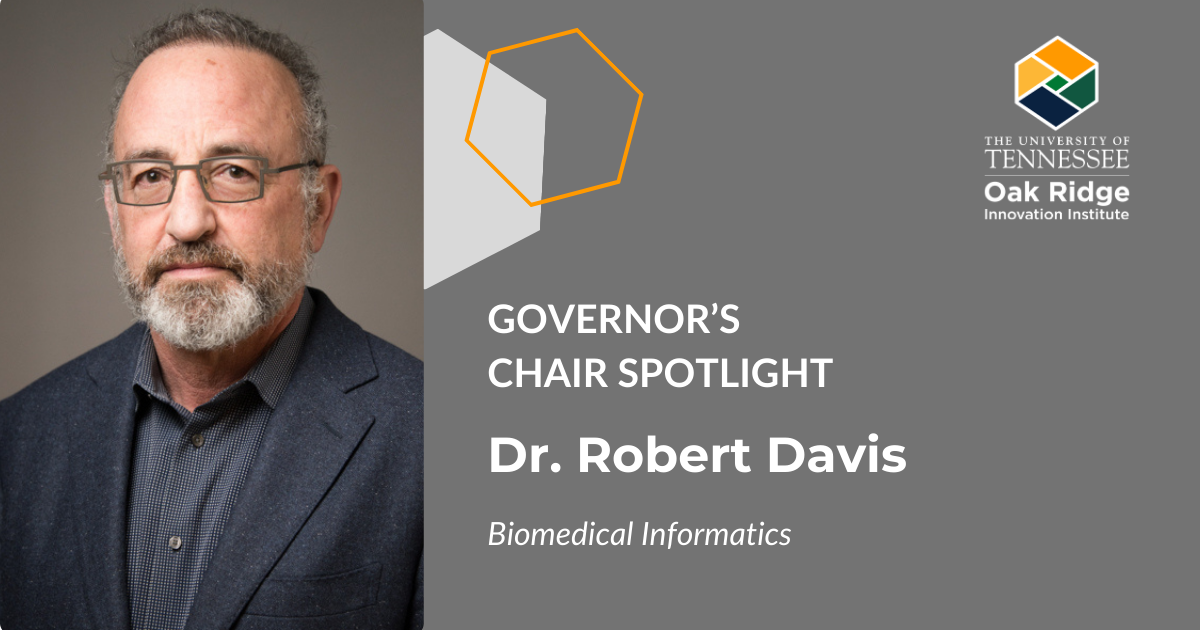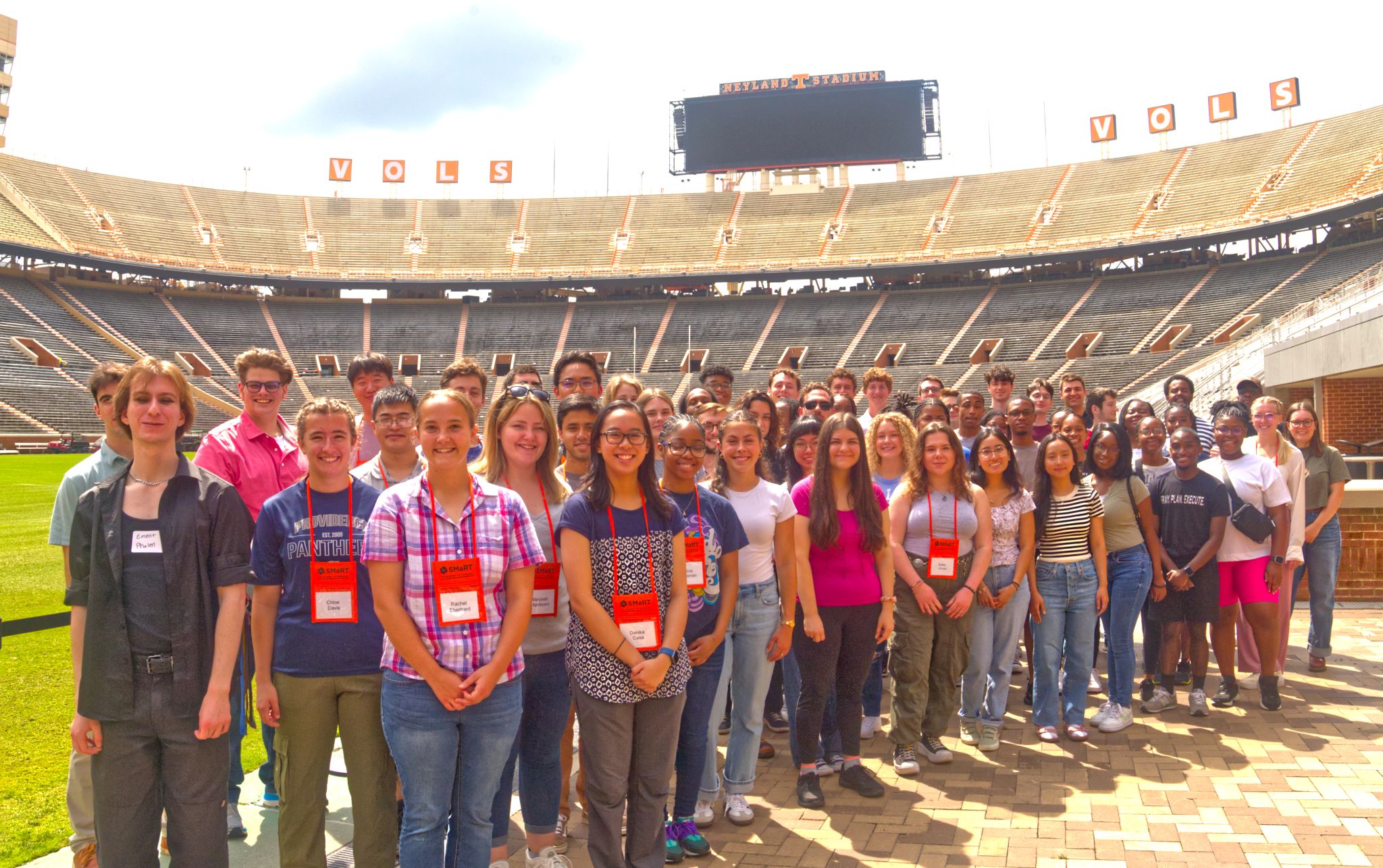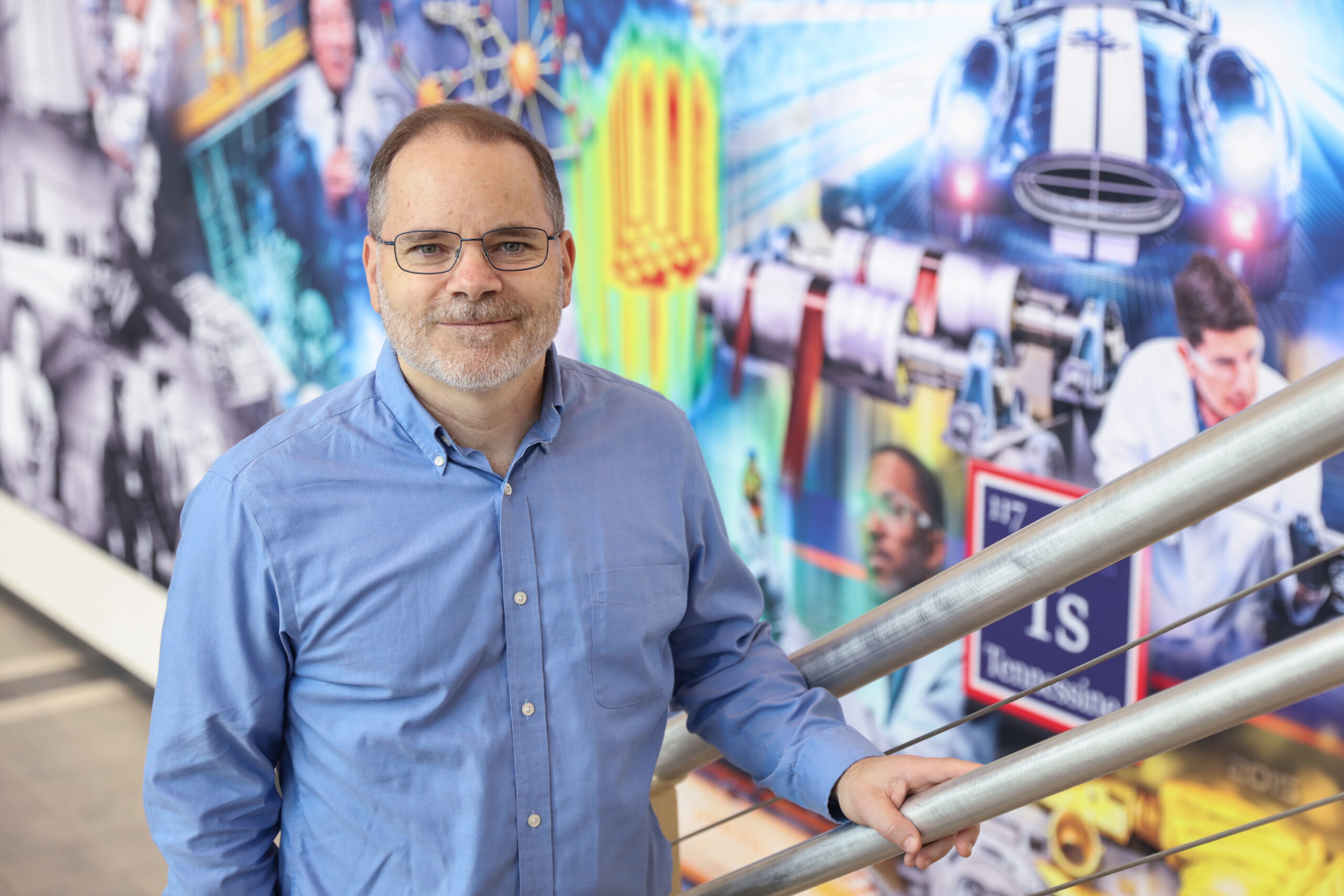When Robert Davis was a youngster, he was captivated by a Life magazine story about mercury contamination causing horrific health issues in Japan.
It sparked an interest that led him to study biology and medicine.
“I wanted to save the world and help people,” said Davis, who was appointed as the University of Tennessee-Oak Ridge National Laboratory Governor’s Chair for Biomedical Informatics when he came to UT Health Science Center in 2013.
Davis is one of 13 UT-ORNL Governor’s Chairs. Funded by the State of Tennessee, ORNL and UT, the program attracts renowned researchers from around the globe to Tennessee to broaden and enhance the unique research partnership that exists between UT and ORNL, and to serve as professors and mentors to UT’s up-and-coming STEM leaders. The prestigious Governor’s Chair program is led by UT and ORNL’s UT-Oak Ridge Innovation Institute, an organization that oversees and encourages UT-ORNL joint research, education and workforce development efforts.
Davis has spent more than 30 years collecting data―lots of data―to make safer drugs and vaccines and search for links between genetics and disease.
A professor of pediatrics at UTHSC, Davis is on the faculty of UT-ORII’s Bredesen Center and is the founding director of the UTHSC’s Center for Biomedical Informatics, which bridges technology, computation and health research.
Davis is the principal investigator for the UTHSC 100K Genomes Project, a DNA biorepository created by UTHSC and its partner pediatric hospital, Le Bonheur Children’s Hospital.
“The amount of medical data on African Americans and other minorities is small compared to the amount of data on Caucasian people. We’ve known for quite some time there’s this huge deficit of knowledge,” he said.
Through the 100K Genomes Project, families of Le Bonheur Children’s Hospital patients can consent to allow excess blood drawn from their children to be stored in a biorepository, identified only by a code that ties it to the patient’s electronic medical records.
To date, researchers have collected DNA from more than 16,000 youngsters, many of them African American.
“We now sit on a huge amount of genetic data,” Davis said.
While other such repositories of genetic data exist, few of them focus on children and few of them have such wide participation of the African-American community.
The researchers have launched a similar genetic collection effort to add adults, especially African-American adults, to the mix. The goal is to collect genetic information on 100,000 Tennessee residents, hence the name 100K Genomes Project.
While research is still in the early stages, Davis said researchers are “well on the way to studying genes that may be linked to asthma and epilepsy.” In time, the 100K Genomes Project may help doctors diagnose diseases and determine the most effective drugs based on an individual’s unique biology.
In a separate project, Davis and UTHSC colleagues from Genomics, Genetics and Informatics and from Preventive Medicine studied data from 1,500 mothers and babies in Memphis and found a link between a specific high-risk gene and pre-eclampsia in African-American women. Preeclampsia is a condition that causes dangerously high blood pressure in pregnant women.
“This was a really important discovery; probably the most important I’ve ever done in my career,” he said, adding that preeclampsia is the leading killer of pregnant women in many parts of the world. It’s a major cause of morbidity in the U.S.
The team has received funding from the GATES Foundation for a follow-up study in Ghana, which has one of the highest preeclampsia rates in Africa.
Davis earned his bachelor’s degree from Bennington College in Vermont, his medical degree from the University of California at San Diego, and his MPH in epidemiology from the University of Washington School of Public Health and Community Medicine.
Before coming to UTHSC, Davis was director of research at Kaiser Permanente Georgia Center for Health Research, director of the Immunization Safety Office at the Centers for Disease Control, and a professor of pediatrics and epidemiology at the University of Washington.
When he gets a break from work, Davis spends time in Atlanta, where he and his wife own a house, and in Chicago where his grown children live.




